Sweeping curves and planted terraces feature in this staggered office building which London-based studio Eric Parry Architects has created alongside a Singapore park.
Spread across seven floors punctuated by planted gardens and curving balconies, the office block was designed by Eric Parry Architects as the headquarters for Singaporean company Wilmar. It contains laboratories as well as 20,000 square metres of office space.
Alongside the office facilities, the studio added a range of outdoor spaces and areas of planting. Additional amenities including an auditorium, staff cafeteria and a gym sit, while a jogging track was added to the rooftop.
“Landscape flows both above and beneath the building’s seven storeys, with a new garden square created by raising the main body of the building as well as a cascade of garden terraces that provide a continuation of the parkland environment up and over the building’s roof,” studio principal Eric Parry told Dezeen.
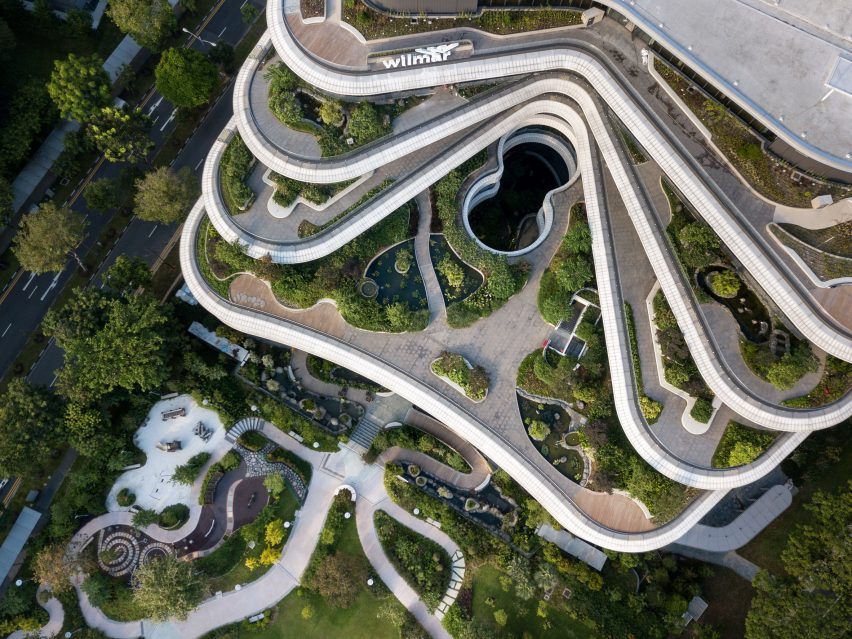
Inviting visitors into the complex, a large double-height plaza spans the ground floor of the development. Featuring curving paths and smaller areas of planting, the plaza wraps around a large central garden topped with a skylight.
“The plaza leads directly from the public realm and offers a cool dry space for rest, relaxation and informal conversations,” said the studio.
“At various points throughout the day, the space will be lit by a dramatic shaft of sunlight coming through the oculus.”
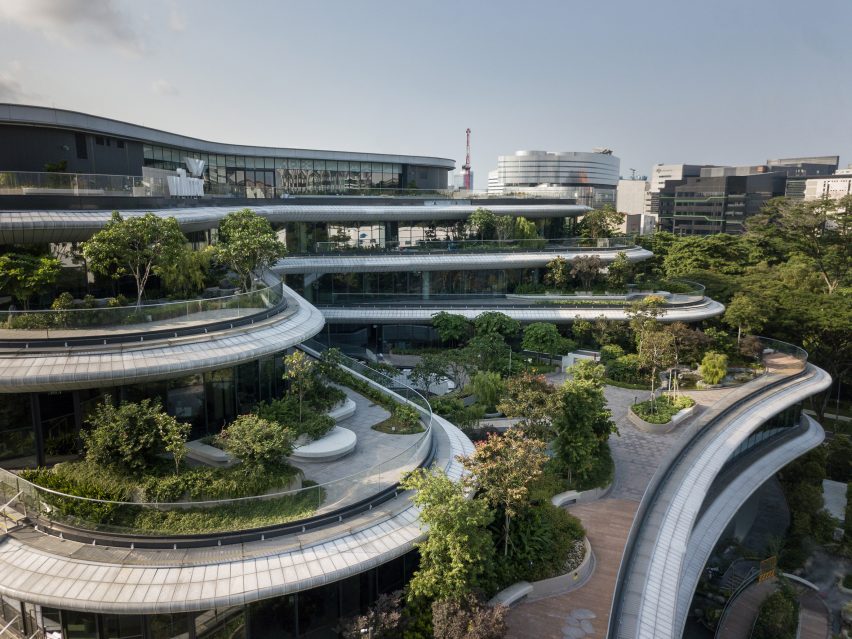
Around the central garden, an arrangement of eight tree-shaped steel-coated columns supports the upper levels of the structure.
To one side of the plaza, the walls of the building’s lowest level comprise glass panels set within diamond-shaped frames, while the volume on the other side features bulging walls coated in glazed ceramic components.
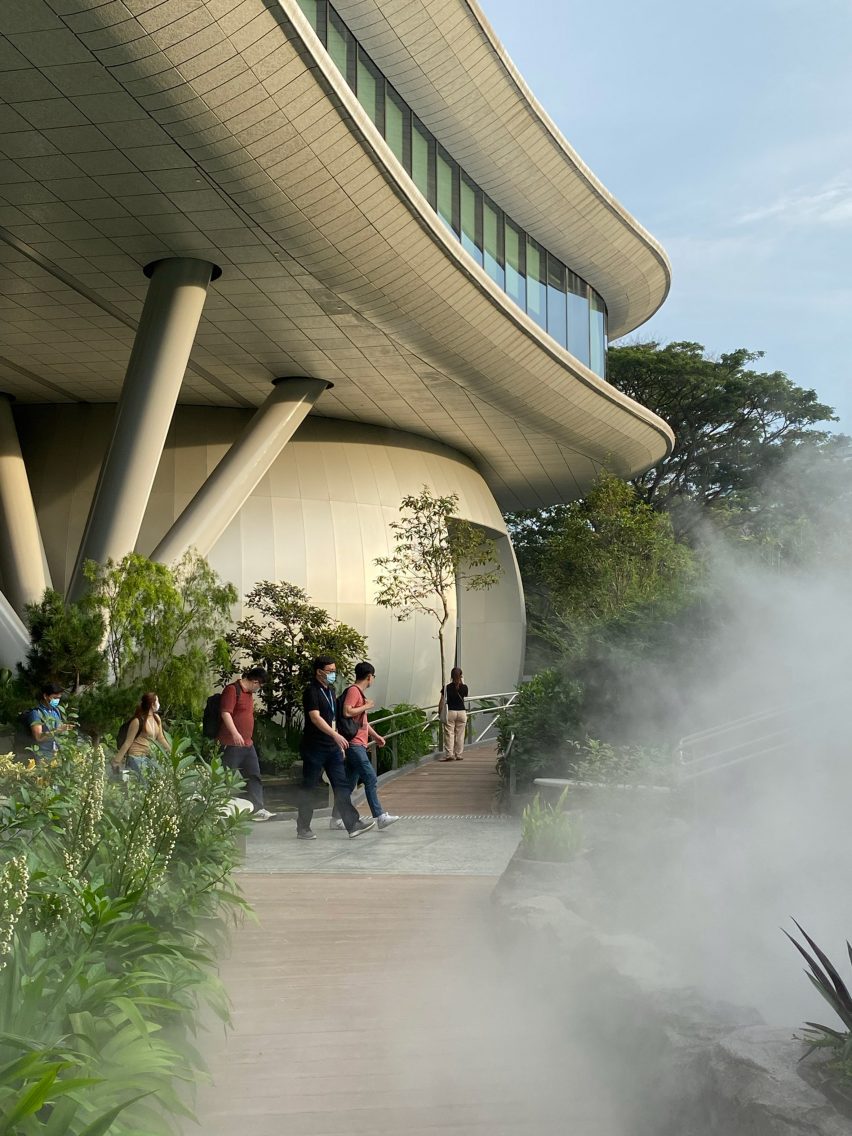
A stretch of single-height glass walls stretches along the curved ground-floor walls, with a glass door added to the glazed portion to allow access to the double-height main reception.
Inside the reception, thick travertine panels line the double-height walls, reflecting the light from the various lighting fixtures throughout the space, including stretching strip lights and a hanging lampshade designed to resemble a flock of birds.
“For the reception area, we selected the interior finishes and lighting to produce a warm, luxurious glow, subtly suggestive of gold, a material favoured in the local culture,” said Parry.
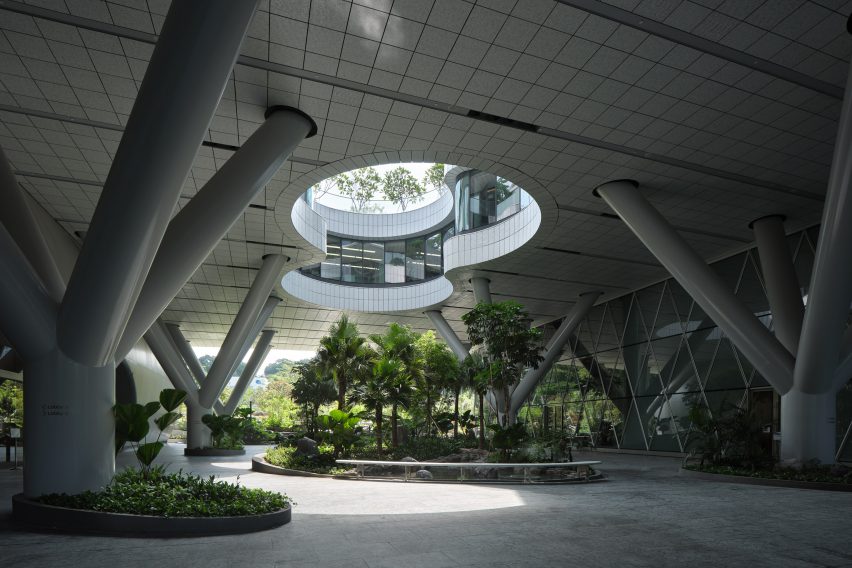
Above the ground floor, the remaining levels of the building are gradually stepped back to create space for partially shaded terraces on each level.
“Singapore’s heavy rainfall has led to the use of covered walkways around buildings to protect pedestrians from intense sun and rain,” said the studio.
“The present design interprets this custom by having walkways around its periphery on each level, which are sheltered by the overhanging ceramic fins of the office floors.”
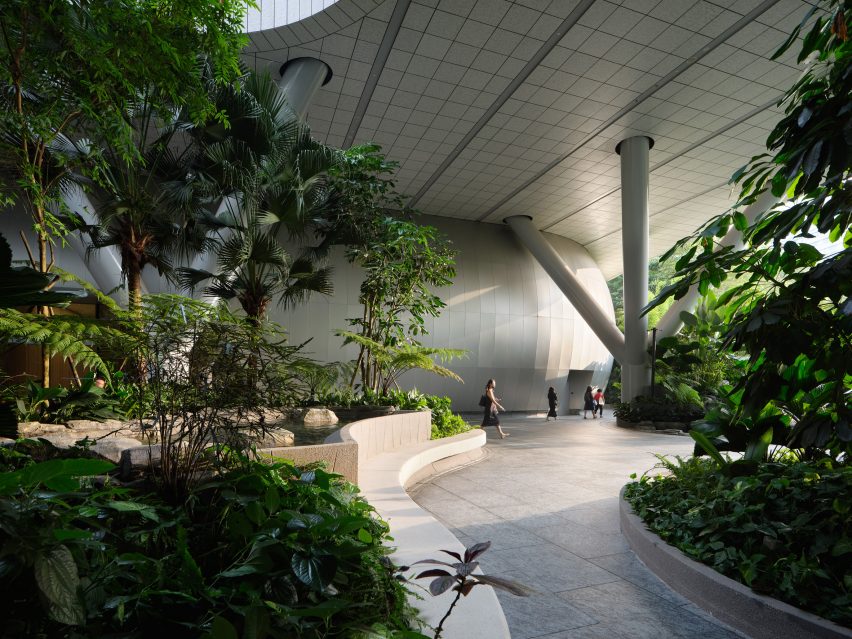
Filled with planting informed by traditional Chinese landscape design, the curving terraces feature smaller gardens and benches as well as offering views of the surrounding city and the neighbouring public park.
“The client has a passion for the contemporary interpretation of Chinese landscape traditions,” said Parry.
“Singapore has a varied flora and fauna, which in turn inspired the choice of biodiverse planting for Wilmar HQ.”
The upper levels of the building feature communal spaces and open-plan workspaces designed to allow for flexible arrangements.
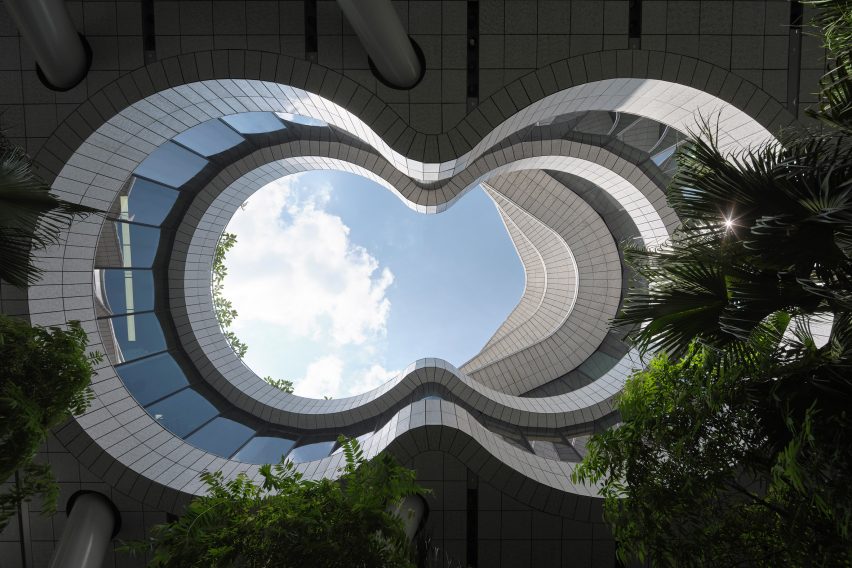
“The client has been responsible for fit out and division of facilities on each floor,” said Parry. “Our design envisages additional amenity space, such as an exhibition space and café in the north wing, and a generous office reception and auditorium in the south wing.”
“The clients’ fit-out includes a curved staircase between the office levels, reducing the dependence on lifts,” he continued.
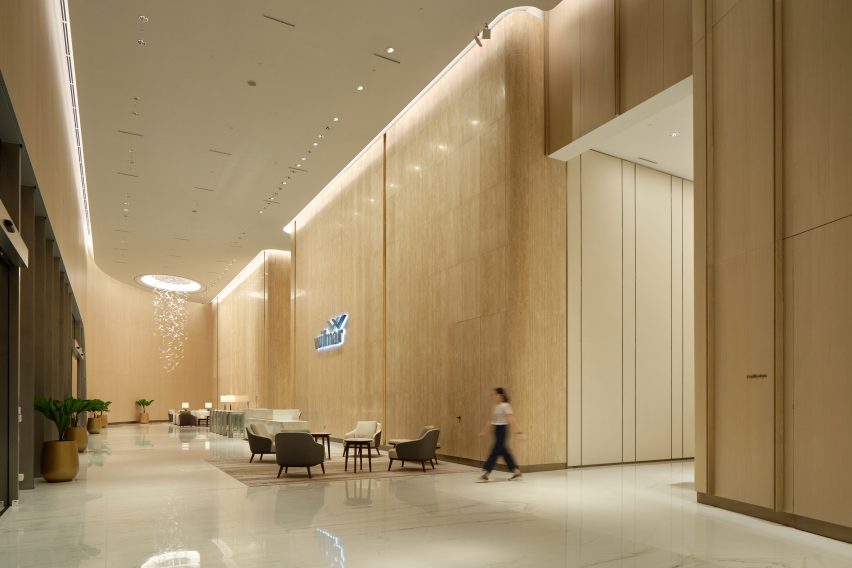
The Wilmar headquarters is one of many buildings in Singapore that combine architecture and greenery after former Prime Minister Lee Kuan Yew planned for the city-state to become a “city in a garden”.
Other examples include the Jewel Changi Airport, a residential tower called Marina One and Heatherwick Studio’s EDEN housing.
The photography is by Fabian Ong unless stated otherwise.

